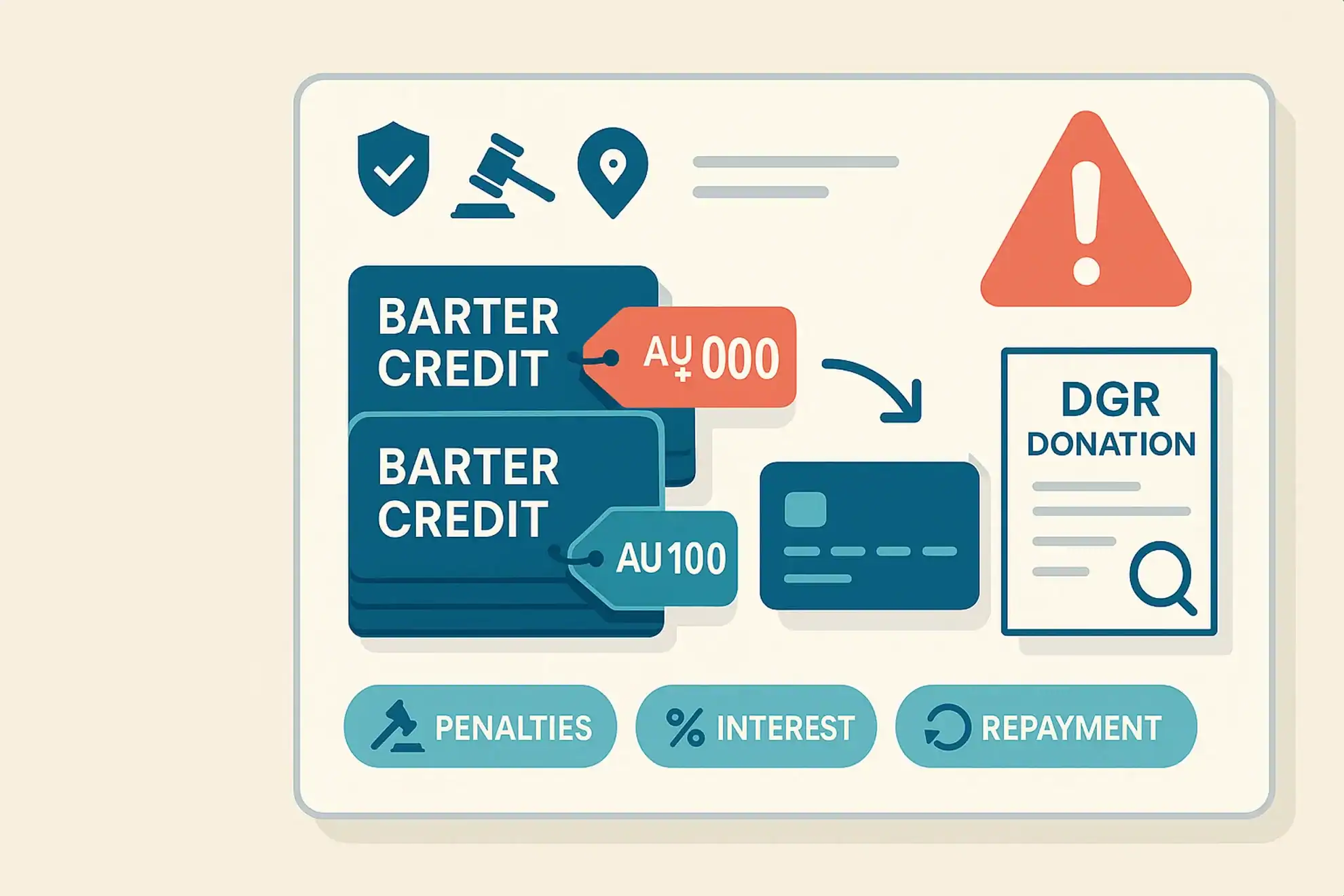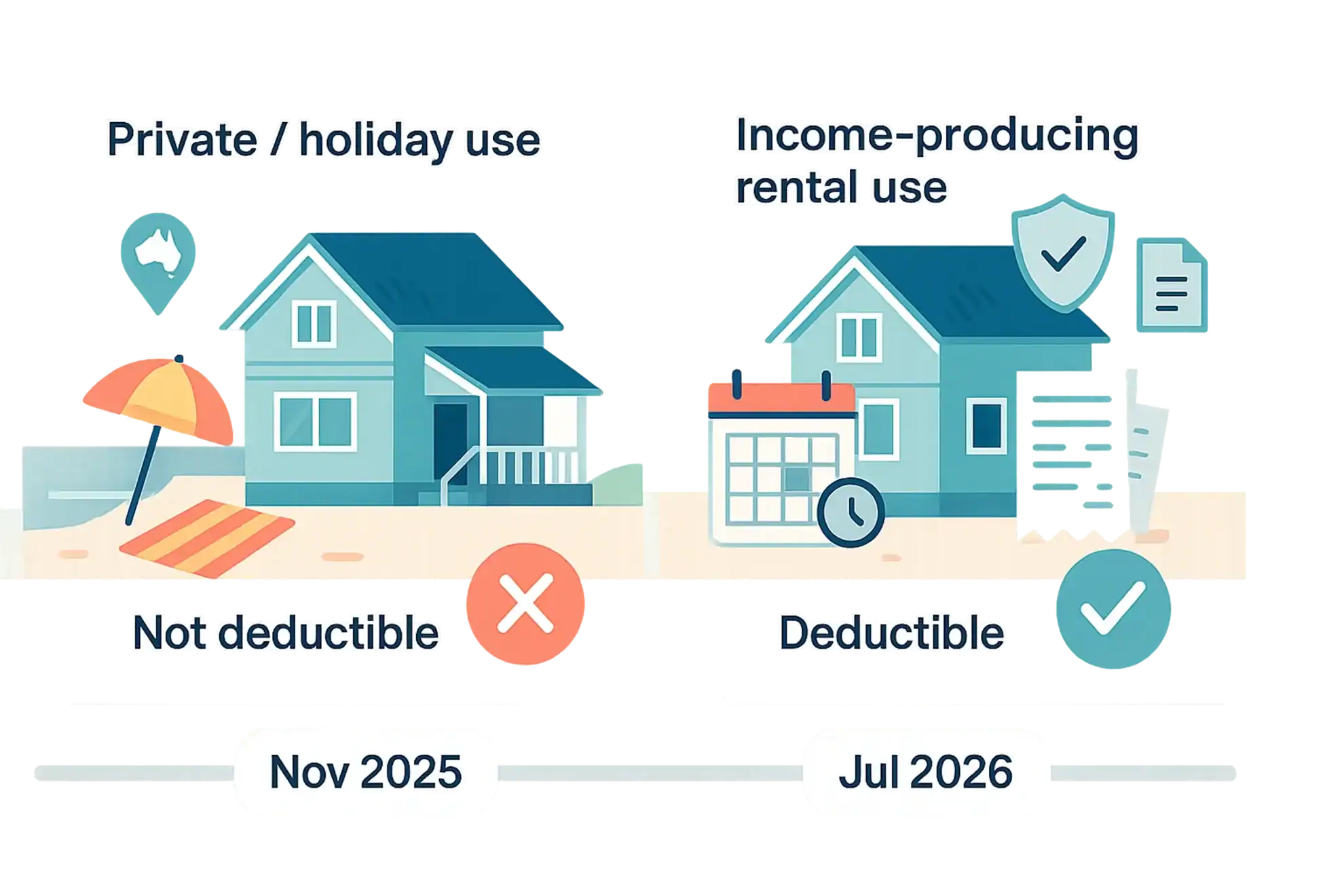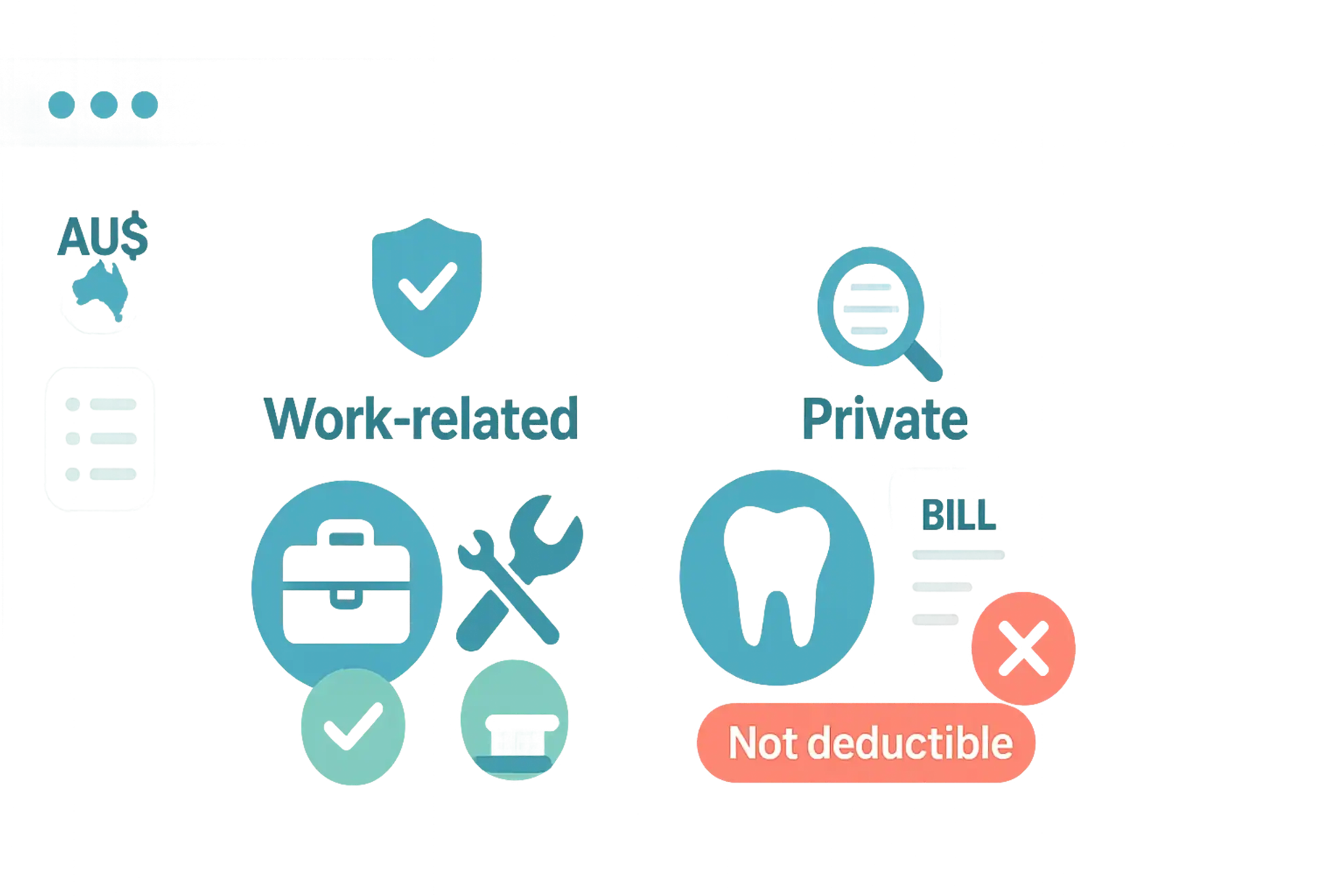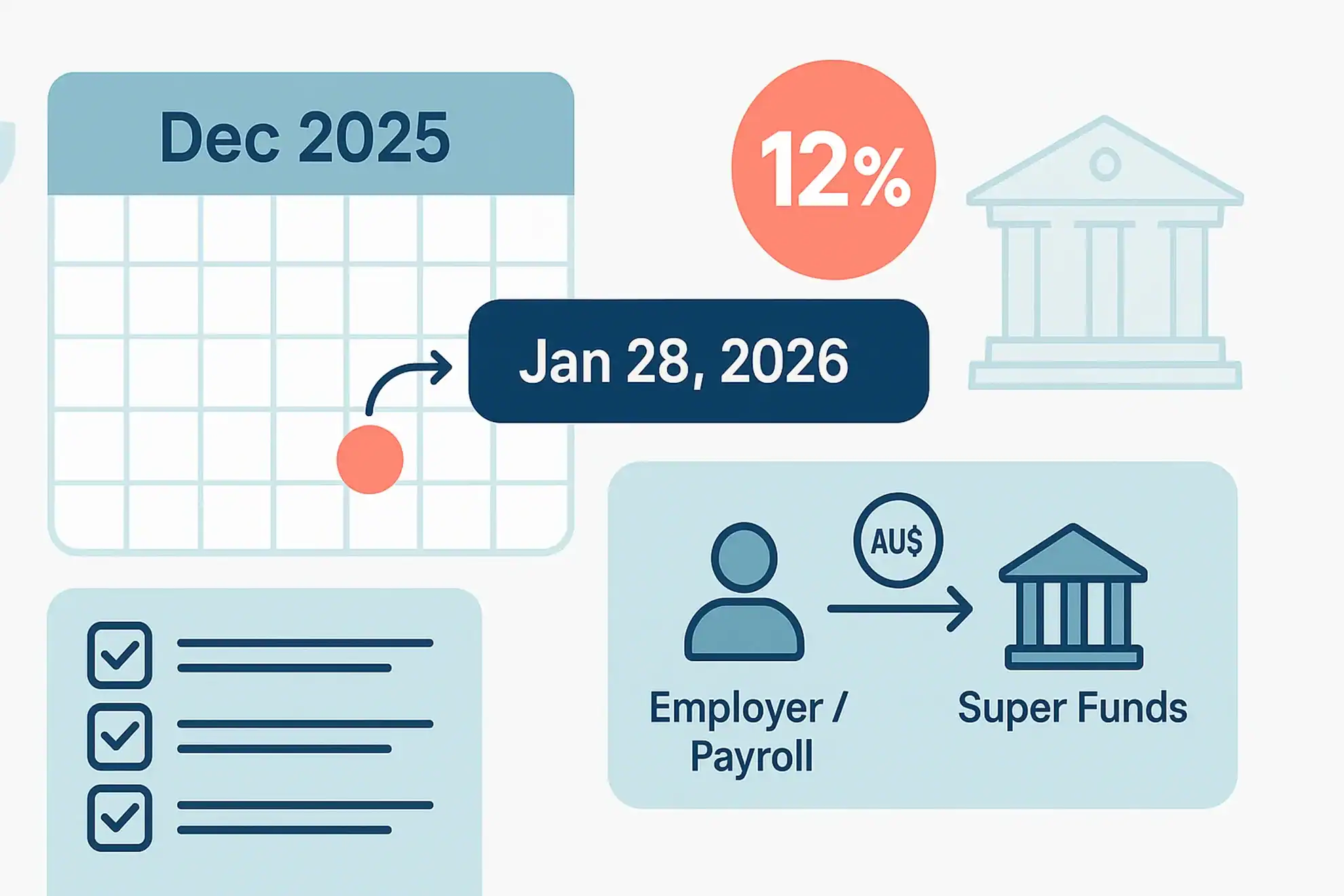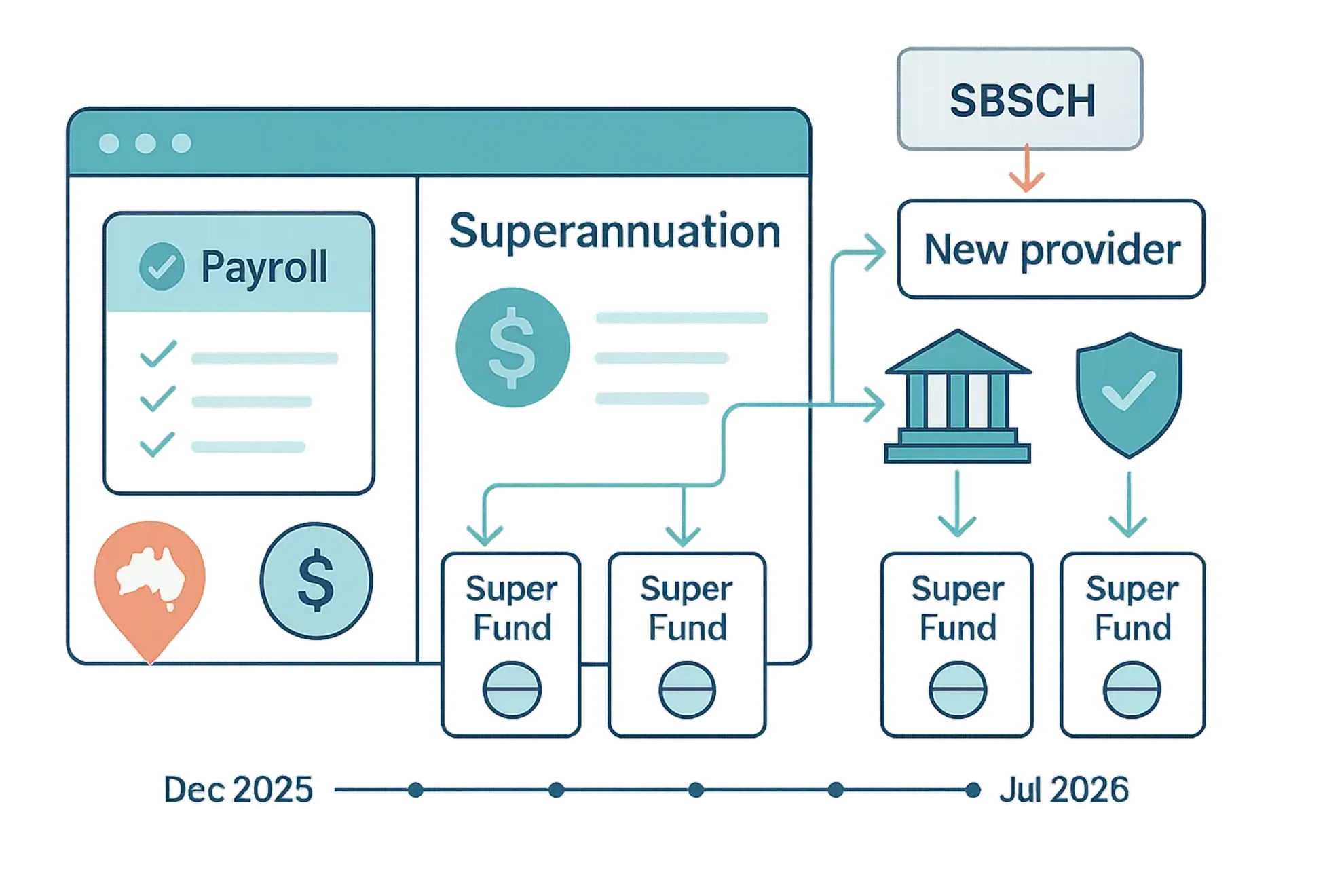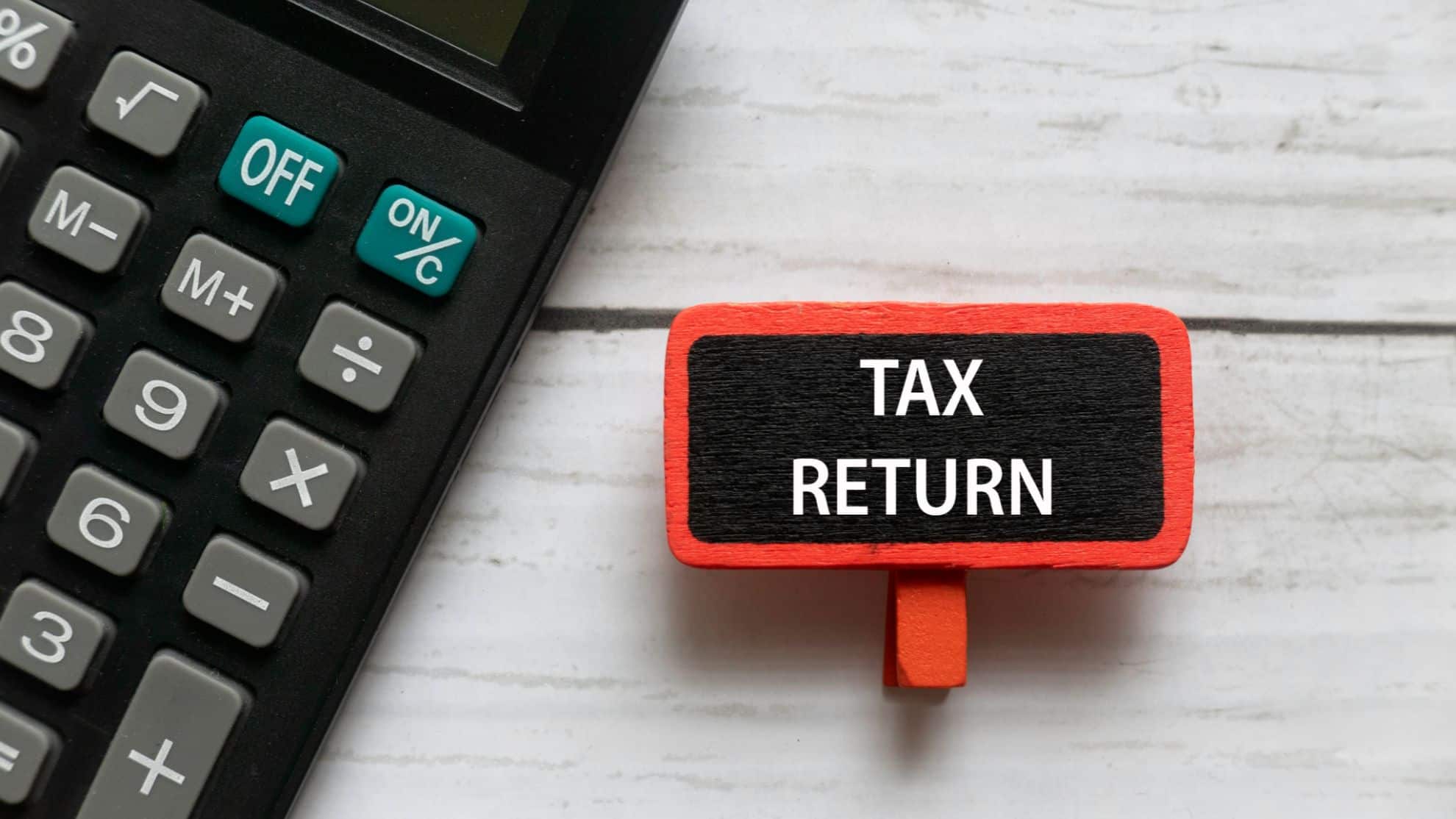Latest News
ATO warns about barter credit tax scheme
The ATO is warning the community to steer clear of an emerging tax scheme involving barter credits — a type of alternative currency used in some business networks. A tax scheme that involves artificially inflating deductions for donations of barter credits to deductible gift recipients (‘DGRs’) is on the rise. While it may seem enticing, […]
ATO’s new approach to holiday home expenses
The ATO has announced that it will take a somewhat different approach in relation to holiday home expenses that are claimed in relation to holiday homes. Broadly, the ATO now takes the view that, if a taxpayer’s rental property is also their holiday home, certain deductions relating to holding it will be completely denied (rather […]
Australians call out tax dodgers in record numbers
The ATO has hit a major milestone of over 300,000 tip-offs from the community about tax dodgers and other dishonest behaviours since 1 July 2019. In the 2024/25 financial year alone, almost 50,000 red flags were raised by members of the community who spotted something suspicious. Most of the tip-offs received related to shadow economy […]
Dental expenses are private expenses
The ATO has been seeing a number of deduction claims for dental expenses this tax time. Dental expenses are private expenses, including preventative and necessary dental treatment, medical expenses and other costs relating to client’s personal appearance (such as teeth whitening, makeup, skin care, shaving products and haircuts) are not deductible. These expenses are generally […]
Reminder of December 2025 Quarter Superannuation Guarantee (‘SG’)
As noted in the previous article, employee December 2025 Quarter Superannuation Guarantee must be received by the relevant super funds by 28 January 2026. If the correct amount of SG is not paid by an employer on time, they will be liable to pay the SG charge, which includes a penalty and interest component. […]
Alternative providers to the SBSCH
Employers should start preparing for the permanent closure of the Small Business Superannuation Clearing House (‘SBSCH’) on 1 July 2026. By acting now to find an alternative service, employers will: have an established process in place to pay super guarantee (‘SG’) for the March and June quarters (if they currently pay quarterly); reduce the risk […]
Changes to deductions this tax time
Taxpayers who are small business owners operating from home, or who use a vehicle for business purposes, need to be aware of some changes when claiming deductions this tax time, including the following. Cents-per-kilometre method – The cents-per-kilometre method for claiming car expenses increased from 72 cents to 78 cents per kilometre in the 2023 […]
Lodging of Taxable payments annual reports
The ATO reminds taxpayers that it is now time for them to check if their business needs to lodge a Taxable payments annual report (‘TPAR’) for payments made to contractors providing the following services: (a) building and construction; (b) cleaning; (c) courier and road freight; (d) information technology; and (e) security, investigation or surveillance. TPARs […]
Reallocation of excess concessional contributions denied
The Administrative Appeals Tribunal (‘AAT’) has held that there were no special circumstances in relation to a taxpayer who made excess concessional contributions in a financial year, such that the ATO could allocate some of those contributions to the previous financial year. On Wednesday, 26 June 2019, the taxpayer arranged for contributions totalling just under […]
Taxable Payments Annual Reports (‘TPARs’) Due 28 August
2021 TPARs are due to be lodged for businesses who have paid contractors to provide the following services: building and construction; cleaning; courier, delivery or road freight; information technology (‘IT’); or security, surveillance or investigation. With specific reference to the TPAR due on 28 August 2021, the ATO has reminded taxpayers they may need to […]
Appointing an SMSF Auditor
The ATO reminds SMSF trustees that they need to appoint an approved SMSF auditor for each income year, no later than 45 days before they need to lodge their SMSF annual return. An SMSF’s audit must be finalised before the trustees lodge their SMSF annual return, as the trustees will need some information from the […]
ATO gives ‘green light’ to lodge
The ATO is giving taxpayers with simple affairs the ‘green light’ to lodge their annual income tax returns. ATO Assistant Commissioner Tim Loh said that most taxpayers with simple affairs will find the information they need to lodge has now been pre-filled in their tax return. Mr Loh also reminded taxpayers that some income may […]

